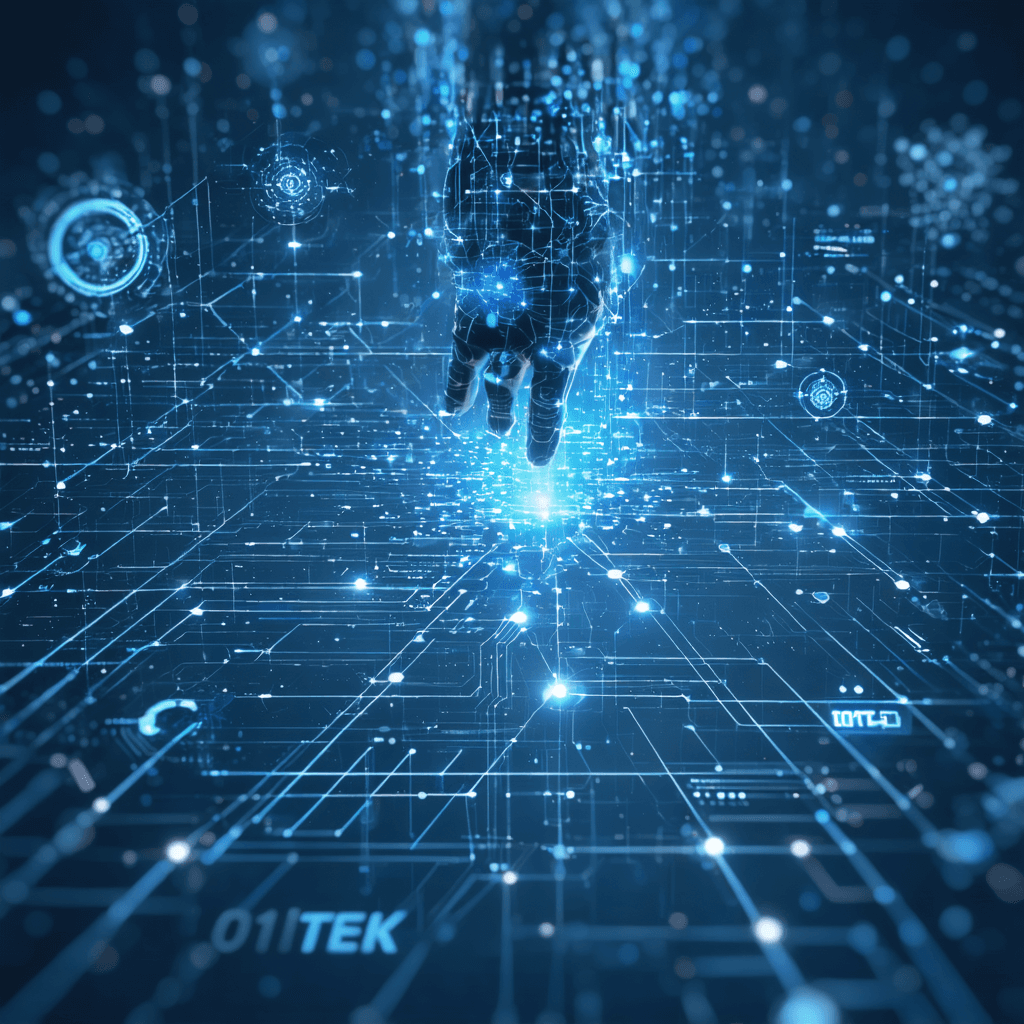Project Management Meets AI: Navigating Methodologies and Data Privacy in the Era of Machine Learning
In today's rapidly evolving technological landscape, the intersection of project management and artificial intelligence (AI) presents both unprecedented opportunities and complex challenges. As organizations increasingly embrace digital transformation, project managers must adapt their traditional methodologies to incorporate AI-driven solutions while addressing critical concerns about data privacy and security.
The Evolution of Project Management in the AI Era
Project management has come a long way from traditional waterfall approaches to more agile and hybrid methodologies. With the integration of AI, we're witnessing a fundamental shift in how projects are planned, executed, and monitored. Machine learning algorithms now assist in:
- Predictive analytics for project timelines
- Resource allocation optimization
- Risk assessment and mitigation
- Automated reporting and documentation
- Pattern recognition for better decision-making
AI-Enhanced Project Management Tools
Modern project management platforms are incorporating AI capabilities that transform how teams collaborate and deliver results. These tools leverage machine learning to:
Automate Routine Tasks: AI-powered systems can handle administrative duties, allowing project managers to focus on strategic initiatives.
Improve Estimation Accuracy: By analyzing historical project data, AI algorithms provide more precise estimates for project timelines and resource requirements.
Enhance Decision Making: Machine learning models can process vast amounts of data to identify potential bottlenecks and suggest optimal solutions.
Facilitate Natural Language Processing: AI-driven chatbots and virtual assistants streamline communication and provide instant support to team members.
Navigating Data Privacy Concerns
As AI systems process increasing amounts of sensitive project data, privacy considerations become paramount. Project managers must address several key aspects:
Data Protection Frameworks
Organizations need to implement robust data protection frameworks that comply with regulations such as GDPR, CCPA, and industry-specific requirements. This includes:
- Establishing clear data handling protocols
- Implementing encryption standards
- Maintaining audit trails
- Regular security assessments
- Training team members on data privacy best practices
Ethical AI Implementation
Project managers must ensure that AI systems are deployed ethically and transparently. This involves:
- Regular monitoring of AI algorithms for bias
- Clear documentation of AI decision-making processes
- Establishing accountability measures
- Protecting individual privacy rights
- Regular ethical impact assessments
Integrating AI with Traditional Project Management Methodologies
Agile and AI
The agile methodology's iterative nature aligns well with AI implementation. Project managers can:
- Incorporate AI-driven analytics into sprint planning
- Use machine learning for backlog prioritization
- Leverage predictive analytics for velocity calculations
- Implement automated testing and quality assurance
Hybrid Approaches
Many organizations are adopting hybrid approaches that combine traditional and AI-enhanced methods:
- Blending waterfall structure with AI-powered analytics
- Utilizing AI for resource optimization while maintaining traditional governance
- Implementing automated monitoring within stage-gate processes
Best Practices for AI Integration in Project Management
1. Start Small and Scale
Begin with pilot projects to test AI implementation:
- Choose low-risk projects for initial deployment
- Gather feedback and metrics
- Adjust implementation strategy based on results
- Gradually expand to larger initiatives
2. Focus on Data Quality
Ensure high-quality data input for AI systems:
- Implement data validation processes
- Establish data governance frameworks
- Regular data cleaning and maintenance
- Continuous monitoring of data accuracy
3. Build Team Capabilities
Invest in team development:
- Provide AI literacy training
- Develop technical skills
- Foster a data-driven culture
- Encourage continuous learning
Future Trends and Considerations
The future of project management will likely see:
- Increased Automation: More sophisticated AI systems handling complex project tasks
- Enhanced Predictive Capabilities: Better forecasting and risk assessment tools
- Improved Collaboration: AI-powered platforms facilitating seamless team interaction
- Greater Integration: Seamless connection between different project management tools and systems
Risk Management in AI-Enhanced Project Management
Project managers must consider:
- Data security risks
- Algorithm reliability
- System integration challenges
- Team adoption and resistance
- Regulatory compliance
- Technical dependencies
Measuring Success and ROI
To evaluate AI implementation success:
Define Clear Metrics:
- Time savings
- Cost reduction
- Quality improvements
- Team productivity
Monitor Key Performance Indicators:
- Project completion rates
- Resource utilization
- Prediction accuracy
- Team satisfaction
The Role of Change Management
Successful AI integration requires:
- Clear communication of benefits
- Stakeholder engagement
- Comprehensive training programs
- Regular feedback collection
- Continuous improvement processes
Building a Future-Ready Project Management Framework
To prepare for continued AI advancement:
- Develop flexible frameworks that can adapt to new technologies
- Create scalable processes
- Maintain strong data governance
- Foster innovation while managing risks
- Build cross-functional expertise
Practical Steps for Implementation
Assessment Phase:
- Evaluate current processes
- Identify AI opportunities
- Assess team readiness
- Review technical infrastructure
Planning Phase:
- Define clear objectives
- Select appropriate tools
- Develop implementation timeline
- Create training plans
Execution Phase:
- Deploy pilot projects
- Monitor results
- Gather feedback
- Make necessary adjustments
Scale and Optimize:
- Expand successful implementations
- Continuous improvement
- Regular reviews and updates
- Knowledge sharing
The integration of AI into project management represents a significant evolution in how organizations deliver successful projects. By carefully considering both the opportunities and challenges, project managers can leverage AI to enhance efficiency while maintaining data privacy and security.
Ready to elevate your project management skills with AI? Explore our comprehensive courses and resources at 01TEK. From fundamental concepts to advanced implementation strategies, we offer the tools and knowledge you need to succeed in the AI-driven project management landscape. Visit our website to learn more about our cutting-edge training programs and start your journey toward becoming a future-ready project manager today.
Most great people have attained their greatest success just one step beyond their greatest failure.
Napoleon Hill



